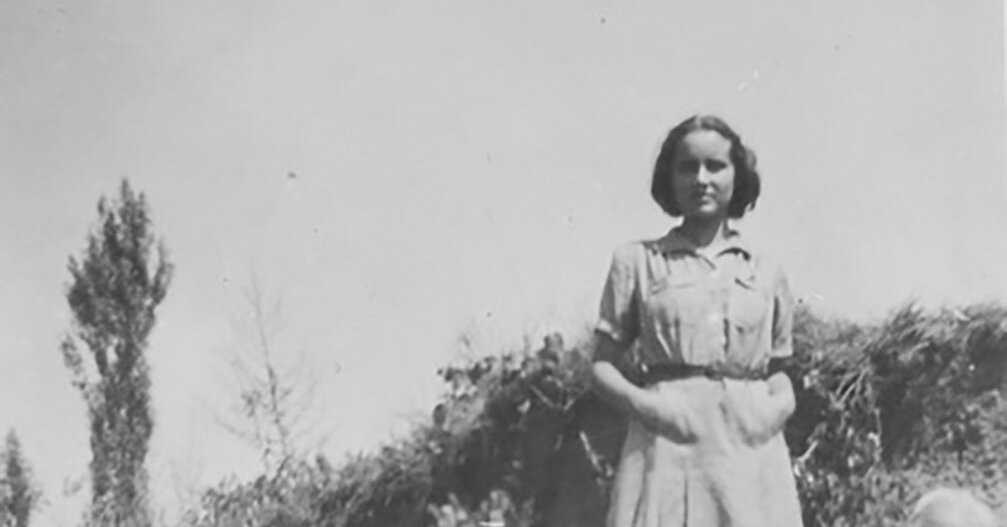That Anna Ornstein, a Holocaust survivor, focused on trauma in a long career as a psychoanalyst may not come as a surprise.
That Dr. Ornstein, who was deported to Auschwitz when she was 17, sought to heal children and adolescents may also not be surprising.
But a startling aspect of Dr. Ornstein’s life and chosen profession was that, despite having experienced unspeakable horror in her youth, she embraced a school of psychotherapy that stresses empathy, seeing the world through others’ eyes, and a belief that all people, even those who seem the most vile, contain a spark of humanity.
Dr. Ornstein, who was born in Hungary and in the 1950s emigrated to the United States, where she practiced and taught child psychiatry at the University of Cincinnati and Harvard and became a leading exponent of a school known as self-psychology, died on Wednesday at her home in Brookline, Mass. She was 98.
Her daughter Sharone Ornstein, who is also a psychiatrist and a psychoanalyst, confirmed the death.
“She had a way of bringing her personal lived experience seamlessly into her work,” the younger Dr. Ornstein said in an interview. “She had a determination to live and create a life, and not be defined by her trauma.”
For seven decades, Anna Ornstein’s life was entwined with that of her husband, Paul Ornstein, another Holocaust survivor who became a psychiatrist. They met as teenagers in Hungary before he was sent to a forced-labor battalion in Ukraine and she to the death camps. They survived, reunited and married in 1946. Together, they earned medical degrees and wrote scholarly papers. They had three children, all of whom became psychiatrists. Paul Ornstein died in 2017.
That year, Anna Ornstein told The New York Times that she believed that self-esteem was what had helped her and her husband survive the war, and that it had also led them to embrace a psychotherapeutic discipline based on the idea that everyone has the capacity to change for the better.
“Self-psychology simply says, ‘Get to know the other — that the skin color, the religion is not what determines a human being,’” she said.
In the 1970s, Dr. Ornstein began writing accounts of what she had experienced during the Holocaust as a teenage girl in rural Hungary, starting with the German occupation of the country in March 1944. For many years, she read those tales at her family’s Passover seders, and in 2004 she collected them in a memoir, “My Mother’s Eyes: Holocaust Memories of a Young Girl.”
She wrote of her family’s deportation to Auschwitz in a cattle car in June 1944, and of her last glimpse of her father and grandmother as they were segregated with other older people and babies, consigned to the gas chambers.
Anna, who clung to her mother’s hand, came to believe that they survived because of each other. Her mother shielded her from the truth about the crematories by telling her that the sweet smell of smoke hanging in the air at Auschwitz was not, as rumor had it, from burning flesh. “My blessed ignorance remained relatively undisturbed,” she wrote. “And blessed it was. It helped me to focus on the day-to-day, moment-by-moment events, something Mother could not do.”
Anna and Paul Ornstein were both trained at the Chicago Institute for Psychoanalysis (now the Chicago Psychoanalytic Institute) by Heinz Kohut, the founder of self-psychology. Dr. Kohut disagreed with Freud’s theory that personality disorders were rooted in the unconscious mind, driven by guilt, sex and aggression.
He and his followers believed that actual experiences — in particular, a parent’s failure to support a child’s emerging sense of self — led to psychological problems.
Anna Ornstein, who wrote an influential 1976 paper, “Making Contact With the Inner World of the Child,” said that a mother’s joyous response to a baby’s learning to sit up, for example, is “the glue that holds a child together.”
“Parenting — the ability to protect, to nourish, to guide — is complex and often falls short,” she said in a 1983 interview with The Boston Globe. “So many children grow up with no one assuming responsibility for parenthood.”
In a 1985 paper, “Survival and Recovery,” Dr. Ornstein used her own and others’ Holocaust experiences to explore how individuals endure deeply traumatic events. She included the surprising detail that being tattooed at Auschwitz brought her “joy” because it meant that she would be assigned to forced labor rather than being sent to a gas chamber.
Recovery from traumatic experiences, she wrote, was possible if survivors found an empathic therapist who actively listened.
“Survivors of trauma have every reason to expect that their stories will evoke fear, confusion, horror and disbelief, and the therapists will protect themselves from these affects by resorting to generalizations or praise for the survivors’ heroism or special qualities,” she wrote. “Such responses, however, make it impossible for survivors to proceed, and the affects associated with the traumatic memory may never, or only partially, enter into the therapeutic dialogue.”
Anna Brunn was born on Jan. 27, 1927, in Szendro, Hungary, a rural town with a population of 3,300, where 40 Jewish families lived in cultural and physical isolation. She was the youngest of three children of William and Sophie (Furth) Brunn. Her father owned a lumberyard.
Anna attended a Jewish high school in the nearby city of Debrecen, knowing that entry to a university was forbidden to Jews. There, in 1941, she met Paul Ornstein, a distant cousin, and they fell in love before being separated by the war.
Soon after arriving at Auschwitz, where prisoners were fed boiled grass, she and her mother were taken to work at a stone quarry in Plaszow, near Krakow. “We carried the stones in silence and dreamed about the thin soup and the piece of bread we would get at the end of the day,” she wrote.
After three months, they were sent back to Auschwitz. In the fall of 1944, they were transferred to Parschnitz, a forced-labor camp in Czechoslovakia.
They were liberated by the Soviet Army in May 1945. With 50 other women, Anna and her mother set off on foot for Hungary. When they arrived in Budapest, people stared at their shaved heads and tattered clothing.
Anna discovered that Paul had survived forced labor, although his mother and brothers had died at Auschwitz. Neither her brother Paul nor her brother Endre survived.
Anna and Paul married in March 1946 and fled to West Germany, where they enrolled as medical students at the University of Heidelberg.
They emigrated to the U.S. in 1951 and eventually settled in Cincinnati, where they did residencies in psychiatry. Anna Ornstein became an instructor of child psychiatry at the University of Cincinnati medical school in 1960 and later a professor. She completed her training at the Chicago Institute for Psychoanalysis in 1971.
In 2000, she and her husband moved to the Boston area to be near their children and grandchildren. Anna Ornstein became a lecturer in psychiatry at Harvard Medical School and a supervising analyst at the Massachusetts Institute for Psychoanalysis.
She also spoke about the Holocaust to young people and community groups.
In addition to her daughter Sharone, she is survived by another daughter, Miriam Ornstein; a son, Rafael Ornstein; and seven grandchildren.
In 2018, after a series of antisemitic incidents in public schools in Reading, Mass., Dr. Ornstein met with students and discussed Kristallnacht, comparing the Nazis’ 1938 escalation of violence against Jews to the contemporary upsurge of white nationalism.
On the eve of the 2020 election, she wrote in The Bulletin of the Boston Psychoanalytic Society and Institute that President Trump’s actions reminded her of the dark days of her youth.
“From the beginning, there has been a search for scapegoats,” she wrote. “In Europe, the Jews were the targets. In this country, Muslims and immigrants have become the hated minorities, and the ever-present antisemitism has been reactivated.”
While she did not believe that death camps would come to America, she said, she was filled with anxiety.
“In the United States,” she wrote, “this is not the time to yield to regressive forces.”
Trip Gabriel is a Times reporter on the Obituaries desk.
The post Anna Ornstein, Psychoanalyst Who Survived the Holocaust, Dies at 98 appeared first on New York Times.




